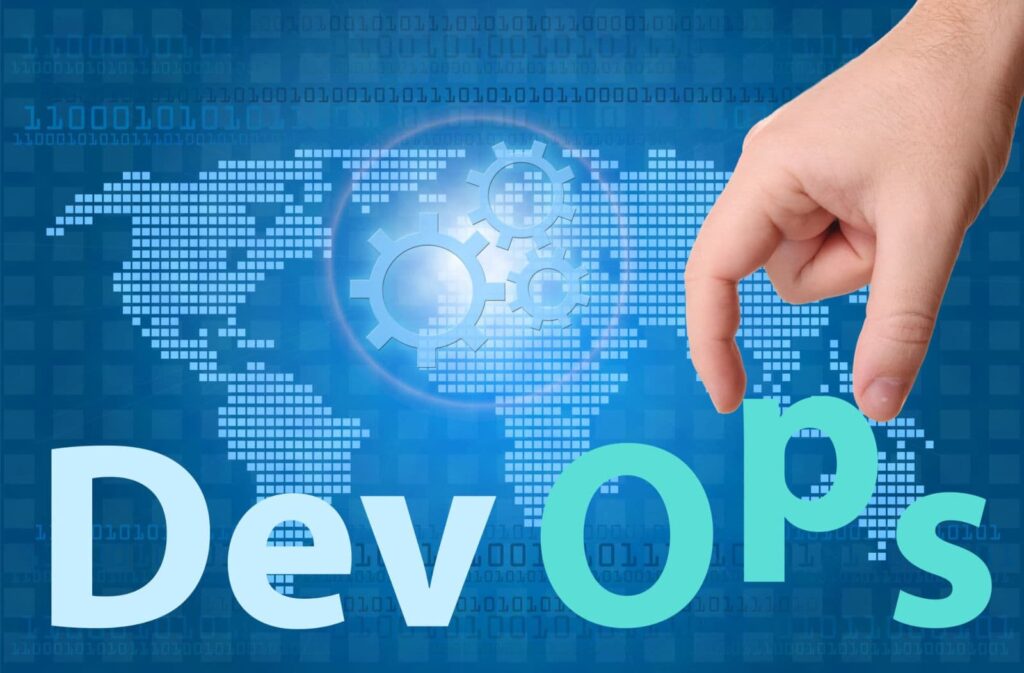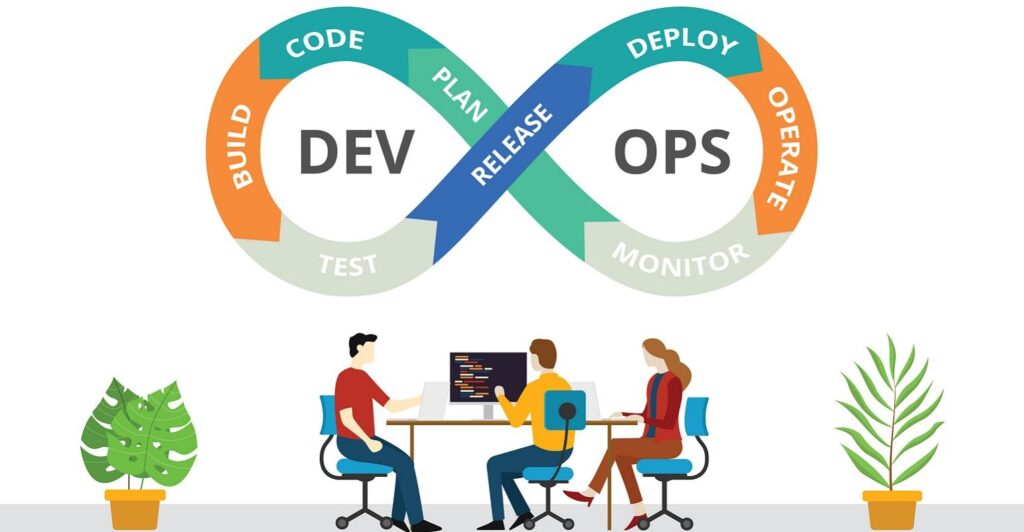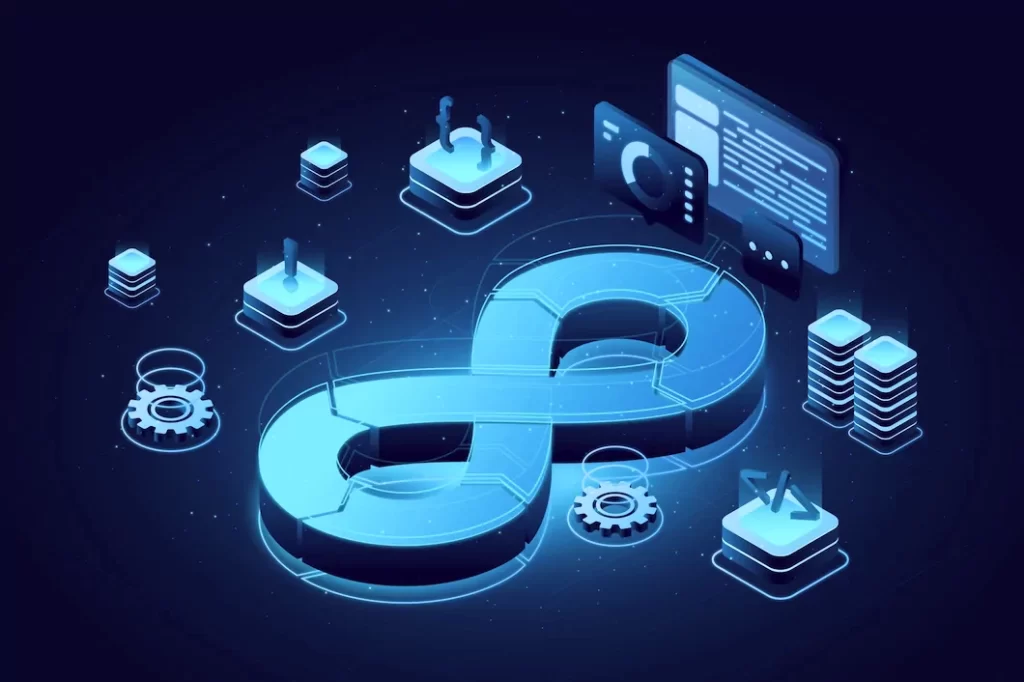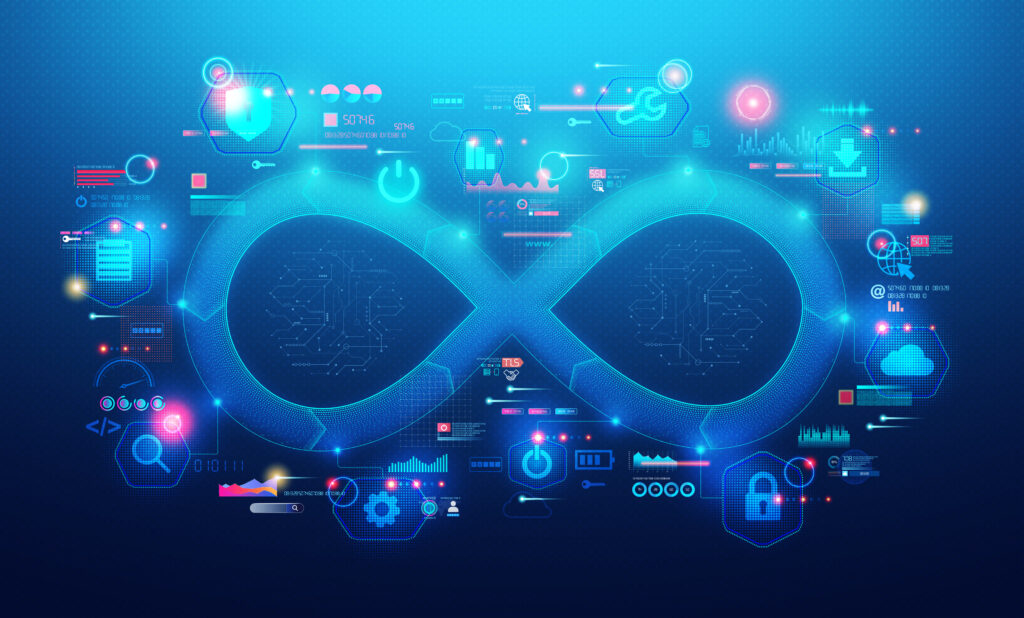Welcome to ITCoordinates.
Helping your business succeed by connecting the dots in Information Technology
The Future of DevOps – 2023 & Beyond
- Home
- The Future of DevOps – 2023 & Beyond
The Future of DevOps – 2023 & Beyond

DevOps is integrating software development and IT operations to produce a more agile, efficient, and customer-focused approach to software delivery.
The future of DevOps is shaped by the increasing demand for faster delivery of software products. This article explores this future in 2023 or beyond by analyzing key trends shaping today’s DevOps environment.
What is DevOps?
DevOps involves practices that help organizations build, deploy and maintain applications and services. DevOps combines both development and operations. DevOps is a relatively new term that has been around for nearly ten years.
The critical skills required for DevOps are:
-
Strong knowledge of application development life cycle (ALC)
-
Strong knowledge of infrastructure as code (IAC)
-
Strong knowledge of configuration management
-
Strong knowledge of continuous integration/delivery (CI/CD).

Is DevOps in High Demand?

DevOps is a process used to develop and deploy software products efficiently. What is the future of DevOps? DevOps is an integral part of the Agile methodology and helps reduce the time between code releases from months to weeks. The future scope of DevOps involves numerous job opportunities in multiple sectors.
The demand for DevOps professionals has been steadily increasing over the last few years, and this trend will also continue in the future.
Trends That Will Impact the Future of DevOps

DevOps is a methodology that aims to bring together developers and operations to speed up the deployment process. DevOps is not just about deploying code faster; it also helps with the quality of the code by reducing bugs and providing more valuable features to customers.
DevOps as a whole has been evolving over the last decade as well. Today’s DevOps is much more than just automating some tasks or having developers write scripts for their processes. It’s about having a culture and an understanding of how you can improve your business by adopting DevOps practices. The future of DevOps 2023 relies on better communication and more job opportunities.
-
Microservices architecture
A new way of building software allows the development and deployment process to be more agile, flexible, and scalable. In this type of architecture, apps are broken down into smaller pieces (microservices) that can be developed and deployed independently. This approach enables companies to respond quickly to changing market conditions by adding new features or scaling up their operations without affecting the entire application.
-
Cloud-native technology
Cloud-native technology is a new way to design and deploy software, which relies on microservices, containers, and immutable infrastructure. This new software development and deployment approach has many benefits for DevOps professionals. It enables them to iterate faster by reducing dependencies on a single application or service. It also helps developers deploy changes without disrupting production services using the immutable infrastructure.
-
Automation and CI/CD
DevOps involves software development and IT operations practices to create a more efficient, cost-effective, and robust system. The rules center on collaboration between software developers and IT operations to improve workflow. As organizations move towards automating their infrastructure, they will also automate their testing and deployment processes. It will help them stay on top of the latest technological changes without spending too much time on manual tasks.
-
AI/ML in the DevOps framework
Technologies are now being used to automate repetitive tasks, optimize resource allocation, and improve quality assurance. Some companies use AI and ML to optimize resource allocation by allocating resources based on demand or supply levels at any given time. One of the most popular multiple cases is the automation of repetitive tasks. For example, a customer might have particular requirements for their product that need to be validated before they can proceed with their project. A human operator isn't required to spend hours on end performing these tasks when an automated solution can do it in minutes or seconds instead. Development Operations Training can help you understand the workflow required in DevOps.
-
Integrating Kubernetes with DevOps
With the rise of Kubernetes as a leading container orchestration engine, it has become even more accessible for organizations to integrate Kubernetes with DevOps. Enterprises across all industries have rapidly adopted Kubernetes as it offers a flexible platform for deploying applications in any environment with any infrastructure or cloud provider
-
Low-code application
Low-code application is one of the trends that will impact the future of DevOps. It is an application created without coding and can be customized with drag-and-drop tools. This trend will help organizations to automate their business processes and increase the speed of delivery. This trend will also help organizations to reduce their IT costs by eliminating the need for custom development and on-site maintenance. It also provides a scalable solution for managing changes in business processes and workflows, which are often challenging for many organizations.
-
GitOps growing adoption
GitOps is a new way to manage infrastructure and code in a DevOps pipeline. GitOps is an extension of the Git version control system for managing the execution of application workloads. It provides the ability to define, test, and deploy applications in a single flow. GitOps offers more agility, security, and stability than traditional systems. It also comes with many benefits, including a Simplified deployment process.
-
DevSecOps (Agile security)
DevSecOps is a concept that includes security in the development process and not only at the end. This concept is to have security be an intrinsic part of software development and not just an afterthought. It has been a rising issue in the industry for years, as software developers would create code without thinking about how they were leaving their customers vulnerable.
The Future of DevOps: Possibilities and Challenges

DevOps has changed how we think about development and operations and has made it possible for organizations to release more software in less time. We are at a point where companies struggle to maintain their competitive edge as they compete with companies that have adopted DevOps.
The future of DevOps is not without its challenges. Maintaining the balance between software delivery speed and quality will be tricky. The future of DevOps needs more focus on automation, monitoring, and security.
DevOps teams must have a shared understanding of their company’s business objectives and goals. To ensure these objectives are met, organizations should coordinate better with their stakeholders on what needs to be delivered from a technical perspective. The future of a DevOps role is that of a particularly optimistic one.
The Future of DevOps: Based on Industry
The future of DevOps is changing as the industry changes. In the past, it was all about automation; now, it's all about artificial intelligence. It's not just about the technical side; many people are working on applying AI to DevOps, and there are many use cases already.
-
IT industry
DevOps can streamline operations and make it easier for developers to release new features. DevOps’ future in the IT industry is a bright one.
-
Telecommunication
DevOps is a software development method that uses software engineering and operations engineering practices. It is about collaborating with people in different disciplines to create high-quality, stable, and secure products.
-
Healthcare
DevOps uses practices that help bridge the gap between development and operations. It is not uncommon for companies to use DevOps for their software-based products, but one can also use it in other industries, such as healthcare.
-
Hospitality
The hospitality industry is one of the most rapidly evolving industries in the world. With the help of technology, it has become easier for hotels to provide better service to their guests and make their lives more convenient. Some hotels even use Artificial Intelligence (AI) to help them with tasks like room service, saving time and money.
-
Banking
DevOps is based on the idea that if you can get faster feedback loops and more frequent deployments, you can release software more often and improve your product. Banking and finance companies increasingly rely on DevOps for their IT infrastructure because they must comply with strict regulations such as PCI DSS (Payment Card Industry Data Security Standard).
-
Manufacturing
The future of DevOps is based on industry. Manufacturing is a critical industry that can benefit from implementing DevOps practices. DevOps has been around for a while and has been successful in the manufacturing industry.
The Future of DevOps: What it Will Look Like in 2030
DevOps is an emerging technology that has rapidly changed our work. As the world becomes increasingly digital, the pressure on companies to innovate faster than ever is increasing. DevOps is a system that helps organizations work more efficiently together to meet these demands.
Conclusion
Are you ready for the DevOps of tomorrow? It’s no secret that DevOps has been transforming and innovating IT for many years, but not everyone is on board just yet. The future of DevOps has never looked brighter, but if you want to ensure that you and your business are making the most of this industry trend, then it’s time to start exploring now.

0